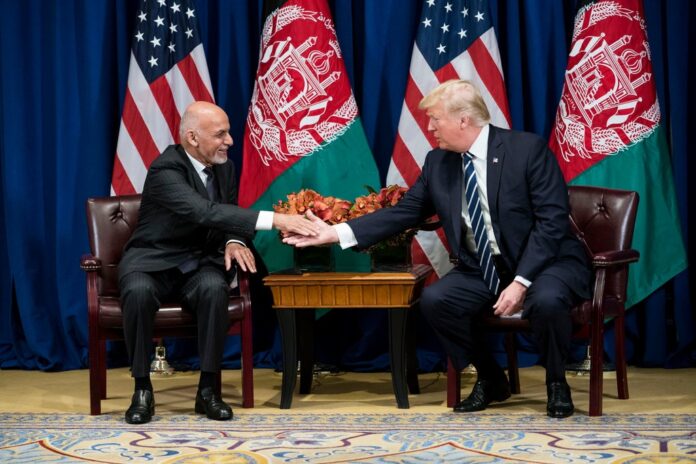
By Aisha Saeed
“Agreements” and “dialogue” have perhaps become a hallmark in South Asian politics.
When the Simla Agreement was signed between India and Pakistan in 1972, Pakistan’s then President Zulfiqar Ali Bhutto said that “the Agreement we signed (last night) represented a breakthrough in our relations. I return home with firm conviction that we can embark on a new era of peace”.
However, matters seldom go as planned and pacts are often derelict. Regional alliances at the cost of another country’s peace and security have kept our region turbulent.
Pakistan’s north-western border posed serious challenges in the form of contiguous tensions that overflowed into the country. The situation in Afghanistan has become an enduring strategic and national security dilemma for Pakistan.
Suffering from decades of trouble and war, Afghanistan’s continued instability has had severe repercussions for Pakistan. Recent events in Afghanistan have only added to the security concerns of Pakistan as the chances of a new civil war in the war-torn country remain evident.
The ineffective management of affairs by the US caused an unnecessary delay in peace in Afghanistan, thus haunting the security perspective of Pakistan. Pakistan shares a stretching 2430 km of border with Afghanistan, making it a sanctuary for militants from both sides, forcing Pakistan to fence the area.
The unpredictability in Afghanistan is causing an external nuisance to Pakistan’s national security, which now instigates from the prevailing developments in the region. What poses Pakistan the most risk is the Indian involvement in Afghanistan and the problematic elements that are being supported by it.
However, the issues that have been disturbing Pakistan’s relationship with Afghanistan date back to the partition of India in 1947, where Afghanistan refused to accept Pakistan as a sovereign state.
Other reasons include unrestrained reports of Pakistan’s
direct link with the Taliban and the contentious standing over the Durand Line
(Pakistan’s border with Afghanistan). Later, when the US and NATO forces went
into Afghanistan, Pakistan was still antagonized for supporting
militants.
Abiding by the UN Charter, Pakistan housed those who crossed into the country from
Afghanistan, making it the second largest refugee-hosting country.
Pakistan also suffered a lot in the attempts of seeing a stable Afghanistan. The unstable situation in Afghanistan has long blocked Pakistan’s easy access to the Central Asian Republics and the anticipated gas pipeline TAPI from Turkmenistan.
The intelligentsia in Pakistan foresaw a viable solution to the instability in Afghanistan and shared the idea with its US counterparts. A politically negotiated settlement between all the local stakeholders was needed to break the decades-old cycle of conflict.
President Trump recently remarked that “good things” were happening in Afghanistan, although many within the Trump administration would not want the US to pull out from the country. The US’ peace process owes much to Pakistan but Pakistan wants more than just credit – a smooth transition that would end Pakistan’s diverted security attention.
Peace talks and negotiations between the Taliban with the US have been taking place at a slow place. The Taliban has been actively engaging with the US, Russia, China and more recently Pakistan. The Lahore Process also recently took place in Pakistan, with the sole purpose of providing a platform to Afghan stakeholders to share their views.
Afghan President Ghani, whose opinions about Pakistan have been condescending in the past, was made to consider an official visit to Pakistan where he met Prime Minister Imran Khan and discussed various bilateral issues of mutual concern. President Ghani has been abandoned by his long term ally, that is, the US over his failure to improve the situation at home. Taliban had waged a war against Ghani’s government which plunged Afghanistan deeper into chaos.
Despite its slow progress, US Secretary of State Mike Pompeo has said that the US aims for a peace deal in Afghanistan by September. However, chances of the US securing a peace deal by September are slim.
Firstly, the Taliban not only want a peace deal but also complete eviction of any foreign troops stationed in Afghanistan. Secondly, the Taliban will not be sharing the government with other stakeholders. Ghani’s government is concerned about its safety post withdrawal of the US forces in Afghanistan. China and Russia wish to pursue joint security interests, however, Afghanistan, for the US, is a strategic station against both.
Third is the question of the Taliban’s legitimacy in the eyes of the rest of the world. Even if a peace deal is reached between the Taliban and the US, it is still unclear whether the global community will support such a government.
Fourth, the Indian elements in India could stall the peace process, fearing that a possible Taliban government would potentially side with Pakistan, which certainly goes against Indian investments and interests in Kabul.
Afghanistan’s endgame is crucial for the region’s long term stability but hurdles to that stability are not yet over.
For Afghan citizens, who are the most important of all the stakeholders, a new Taliban government is not what they expected, hence any progressive policies under the Taliban regime would remain a distant dream.
Urgent improvement in health, education and infrastructure sectors could win the Taliban a few points, however it does not grantee full support in its early years of power. Pakistan is unlikely to accommodate President Ghani’s request of any deals to assist him. Pakistan cannot risk harbouring any official from the current Afghan government nor provide them with safety.
Afghanistan’s endgame began when the US started to consider Taliban a “legitimate” stakeholder, but the ultimate conclusion of this endgame is not as near as Pakistan would like it to be.
The events show weakening the US influence on Pakistan and Afghanistan, and if the US fails to earn an allied status with Taliban again, all attempts for peace would remain futile. The endgame for Afghanistan could well be the endgame for the US.
Aisha Saeed is an independent analyst on media and foreign policy. She tweets @MsAishaK.



